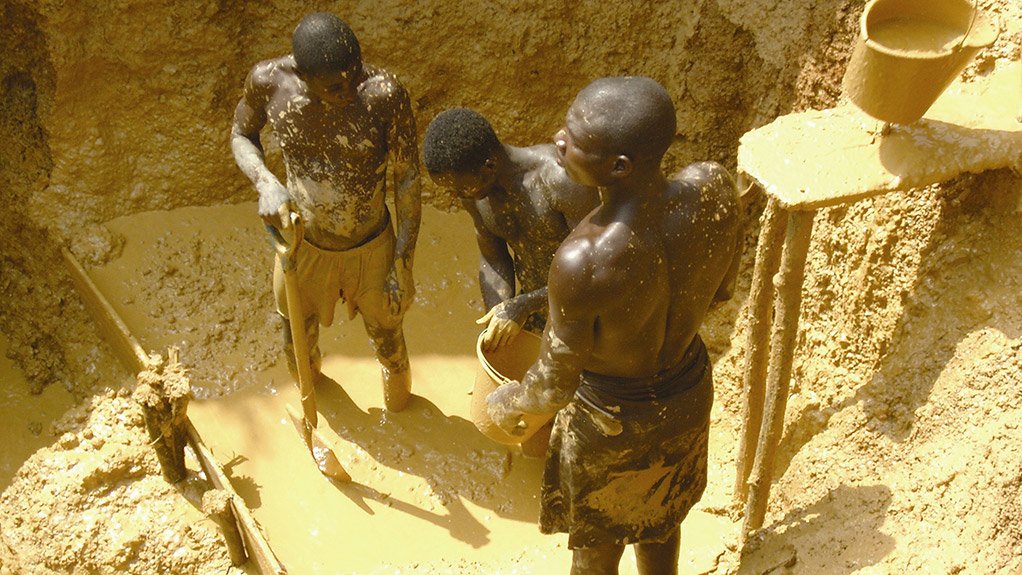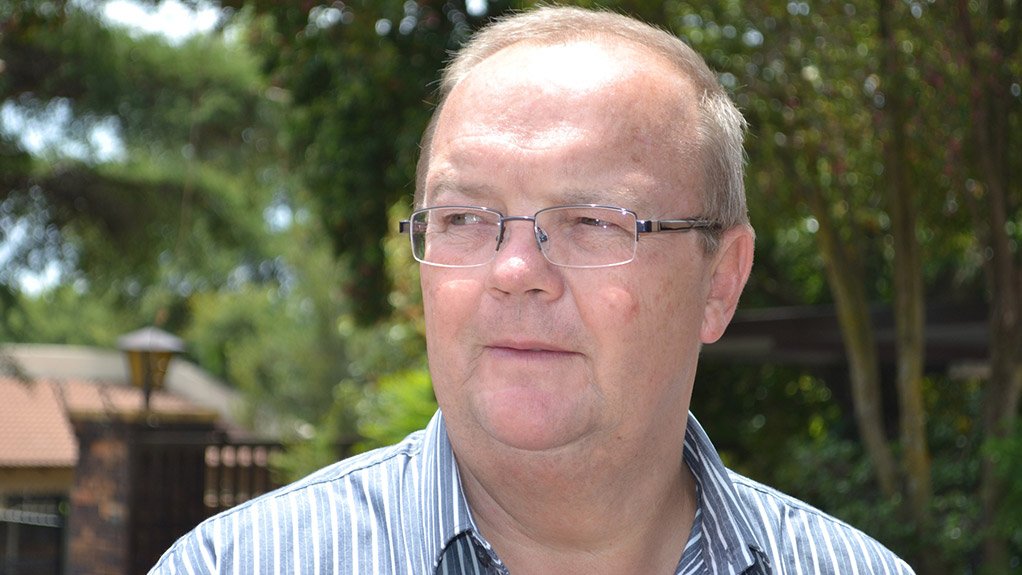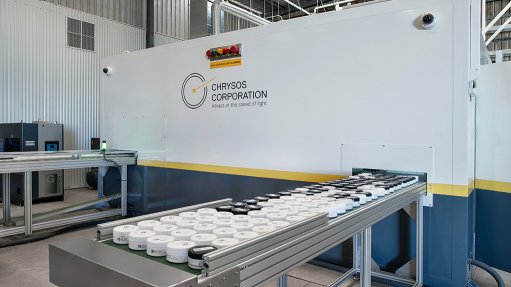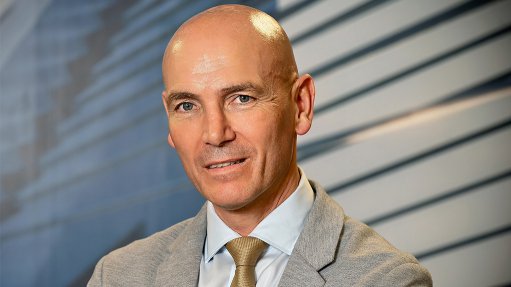Illegal sands, aggregate mining a concern



ILLICIT ACTIVITIES Illegal mining leads to the illegal occupation of land, illegal power and water connections, pollution, and the degradation of the natural environment
Photo by COMMDEV
NICO PIENAAR The Aggregate and Sand Producers Association of Southern Africa is campaigning tirelessly to eradicate illegal sands and aggregates mining
Bitter battles are currently being fought over mining rights and the validity of permits issued by various government departments to mine sands and aggregate sites, particularly along the coastal regions of South Africa, says the Aggregate and Sand Producers Association of Southern Africa (Aspasa).
“Environmental concerns have also been raised, and the effects of mining on surrounding communities has come under considerable scrutiny,” states Aspasa.
The association notes that, after a series of lengthy court battles between the City of Cape Town and mining company MaccSand, the Constitutional Court ruled in 2012 that municipalities have the power to prevent mining from taking place in zones that do not permit mining activities, such as residential areas.
MaccSand was prevented from mining dunes situated in a residential area, which was close to a Mitchells Plain school, in the Western Cape. The school was situated in an area zoned as a public open space.
Aspasa further highlights that there have been several reports of mining companies not completing environmental-impact assessments in line with provincial and national environmental protection requirements. In some cases, mining rights had not been obtained at all, says the association.
Championing the Cause
Aspasa has come out strongly against illegal sand and aggregate mining in any form.
“Legislation has been put in place for a good reason and needs to be abided by at all times. Otherwise, quarries must face the consequences,” states Aspasa director Nico Pienaar.
He emphasises that, as with the mining of any mineral, it is necessary for quarries to obtain rights from the Department of Mineral Resources (DMR) and the necessary environmental clearances from local, provincial and national government departments.
He states that mining companies must also ensure that they comply with all other legislation and by-laws.
“A mining licence is not a blank cheque to start mining. It is merely the first step in a process that needs to be followed before mining may start,” says Pienaar.
He emphasises that the rights of communities around which mining companies wish to operate also need to be considered, as do the relevant environmental protection issues.
Ill-Gotten Gains
Pienaar says Aspasa has been campaigning tirelessly to eradicate the illegal mining of sands and aggregate sites throughout South Africa.
“We view the use of illegal sand and aggregate as a severe infringement, as the mineral belongs to the State,” he points out.
Pienaar further explains that legal operations pay royalty fees to the State, and have to comply with a host of legislative requirements.
However, he laments that illegal operations are exempted from these requirements, as the DMR does not seem to want to prosecute these operations. Aspasa has therefore requested the Green Scorpions, the South African Revenue Service and other industry stakeholders to get involved in tackling these issues.
Pienaar notes that the effects of illegal mining include the illegal occupation of land; illegal water and power connections; pollution; and the degradation of the natural environment.
Further, the influx of unemployed illegal immigrants often gives rise to an increase in crime in the vicinity of the illegal mine.
Pienaar also points out that illegal mining leads to unrehabilitated borrow pits – pits from which construction material, such as sand and gravel, is extracted for use as fill at another location. He adds that this affects the sustainability of the formal mining industry.
Pienaar concedes that, in years gone by, the local countryside was scarred by “ill-conceived quarries and unrehabilitated borrow pits that, in many instances prevented the land from ever being used again”.
“There is little that can be done to reverse the damaging practices of yesteryear. However, there is a lot that can be done to prevent similar mistakes in future.”
Despite these challenges, Pienaar says the association will continue to work closely with the DMR to identify and eradicate illegal mines throughout the country.
“Through Aspasa’s permanent representation on the Chamber of Mines, we will continue to act on behalf of the industry to improve the sustainability and profitability of our members’ operations,” Pienaar asserts.
“We also urge sand and aggregate users to use only Aspasa-accredited suppliers. This ensures that they are supporting sustainable mining practices for the future,” he states.
Encouraging Best Practice
Pienaar highlights that Aspasa assists in regulating the quarrying industry by ensuring that mined materials are of a good quality and by looking after the interests of all who work in the industry, as well as those who are affected by its operations.
“We also promote transformation in our industry and aim to represent all sectors of society fairly and equally, without excluding any group or population,” he adds.
Pienaar points out that the association requires its members to undergo accreditation and yearly audits to ensure that they comply with health and safety, and environmental regulations.
Aspasa also encourages members to ensure that they comply with all legislation and by-laws relating to operating a legal quarry or sand mine.
“These audits count towards the Mining Charter score sheet that is completed and sent to the DMR yearly. To retain their accreditation, our members are unable to cut corners. As a result, they generally do not get caught up in price wars or other unsustainable and damaging practices that are commonly instigated by unscrupulous operators,” he concludes.
Comments
Press Office
Announcements
What's On
Subscribe to improve your user experience...
Option 1 (equivalent of R125 a month):
Receive a weekly copy of Creamer Media's Engineering News & Mining Weekly magazine
(print copy for those in South Africa and e-magazine for those outside of South Africa)
Receive daily email newsletters
Access to full search results
Access archive of magazine back copies
Access to Projects in Progress
Access to ONE Research Report of your choice in PDF format
Option 2 (equivalent of R375 a month):
All benefits from Option 1
PLUS
Access to Creamer Media's Research Channel Africa for ALL Research Reports, in PDF format, on various industrial and mining sectors
including Electricity; Water; Energy Transition; Hydrogen; Roads, Rail and Ports; Coal; Gold; Platinum; Battery Metals; etc.
Already a subscriber?
Forgotten your password?
Receive weekly copy of Creamer Media's Engineering News & Mining Weekly magazine (print copy for those in South Africa and e-magazine for those outside of South Africa)
➕
Recieve daily email newsletters
➕
Access to full search results
➕
Access archive of magazine back copies
➕
Access to Projects in Progress
➕
Access to ONE Research Report of your choice in PDF format
RESEARCH CHANNEL AFRICA
R4500 (equivalent of R375 a month)
SUBSCRIBEAll benefits from Option 1
➕
Access to Creamer Media's Research Channel Africa for ALL Research Reports on various industrial and mining sectors, in PDF format, including on:
Electricity
➕
Water
➕
Energy Transition
➕
Hydrogen
➕
Roads, Rail and Ports
➕
Coal
➕
Gold
➕
Platinum
➕
Battery Metals
➕
etc.
Receive all benefits from Option 1 or Option 2 delivered to numerous people at your company
➕
Multiple User names and Passwords for simultaneous log-ins
➕
Intranet integration access to all in your organisation




















